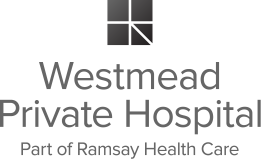Why have I received an obstetrics referral? Understanding the Reasons Behind Your Doctor’s Recommendation
Pregnancy is a journey filled with anticipation, excitement and, sometimes, a few unexpected turns. One such turn might be an obstetrics referral, leaving you wondering why this additional layer of care is necessary. While the reasons can vary, understanding the underlying factors can help you feel more informed and at ease throughout your pregnancy experience. Some of the common reasons for obstetrics referral are:
High-Risk Pregnancies – Obstetrics referral
Certain factors can increase the risk of complications during pregnancy, prompting a referral to obstetrics. These include:
- Advanced maternal age: Women over 35 are considered high-risk due to increased chances of preeclampsia, gestational diabetes, and chromosomal abnormalities.
- Medical conditions: Pre-existing medical conditions like diabetes, hypertension, or autoimmune disorders can complicate pregnancy, necessitating specialised care.
- Pregnancy complications: A history of miscarriages, premature births, or recurrent infections may warrant obstetric intervention.
- Multiple pregnancies: Twins, triplets, or higher-order multiples often require closer monitoring and management.
Abnormal Foetal Development
Concerns about the baby’s health can also trigger a referral to obstetrics. This may include:
- Intrauterine growth restriction (IUGR): If the baby’s growth falls below the expected rate, obstetric monitoring can help identify and address any underlying issues.
- Foetal anomalies: Ultrasound scans or genetic testing may reveal abnormalities in the baby’s development, requiring specialised care.
Patient Preference
Some women prefer to receive obstetric care throughout their pregnancy, even if they don’t fall into the high-risk category. This choice may stem from a desire for more personalised care or a higher level of expertise.
Addressing Concerns and Preparing for Obstetric Care
Receiving a referral to obstetrics can understandably raise questions and concerns. It’s important to have an open and honest conversation with your doctor to understand the specific reasons for the referral and what to expect from your obstetric care.
- Ask questions: Don’t hesitate to ask your doctor about the specific risks or concerns that prompted the referral. Understanding the rationale behind the recommendation can help alleviate anxiety and promote informed decision-making.
- Seek reassurance: If you feel overwhelmed or apprehensive about the referral, talk to your doctor or a trusted friend or family member. They can provide emotional support and help you navigate this new chapter in your pregnancy journey.
- Prepare for obstetric appointments: Familiarise yourself with the obstetric practice or hospital, gather necessary documentation, and prepare a list of questions to ask your obstetrician.
Remember, a referral to obstetrics is not a cause for alarm but rather a proactive step to ensure you and your baby receive the best possible care during pregnancy, labor, and delivery. Approach this transition with an open mind, trust in your healthcare providers, and cherish the journey ahead.
To find out more about obstetric appointments, or to make one yourself, please contact our team.










